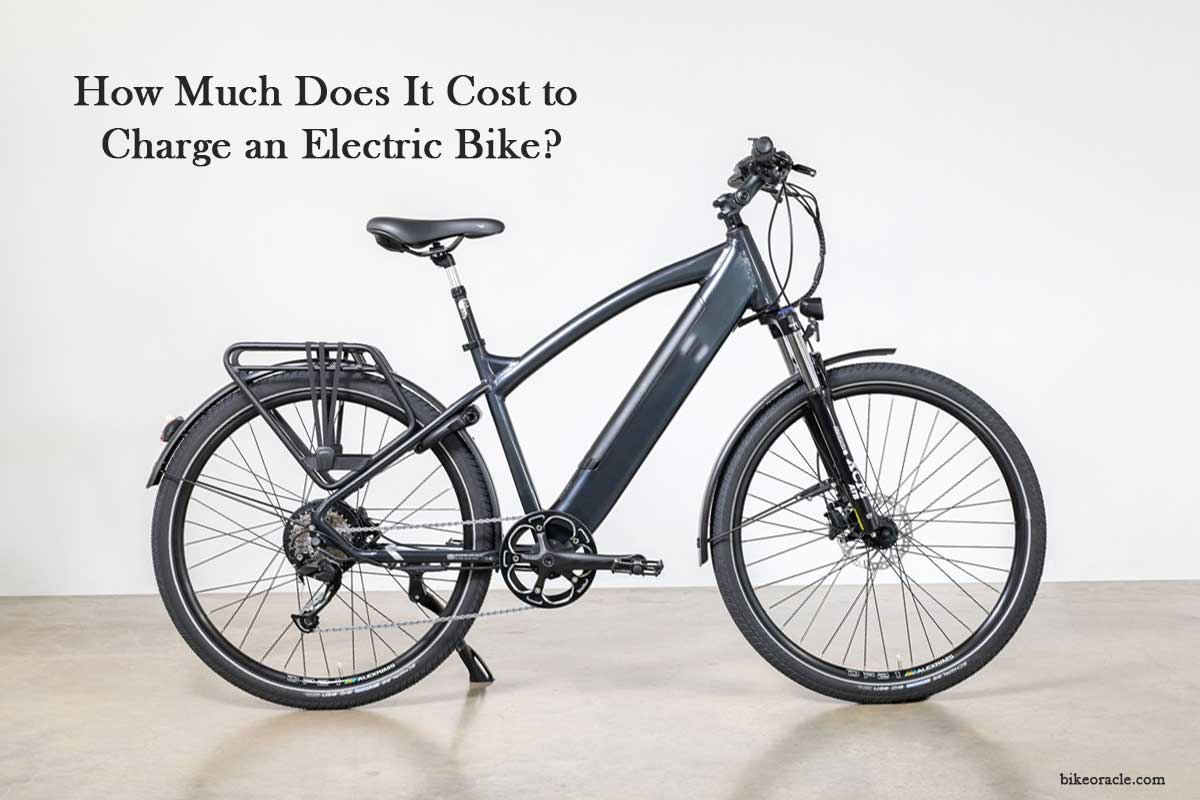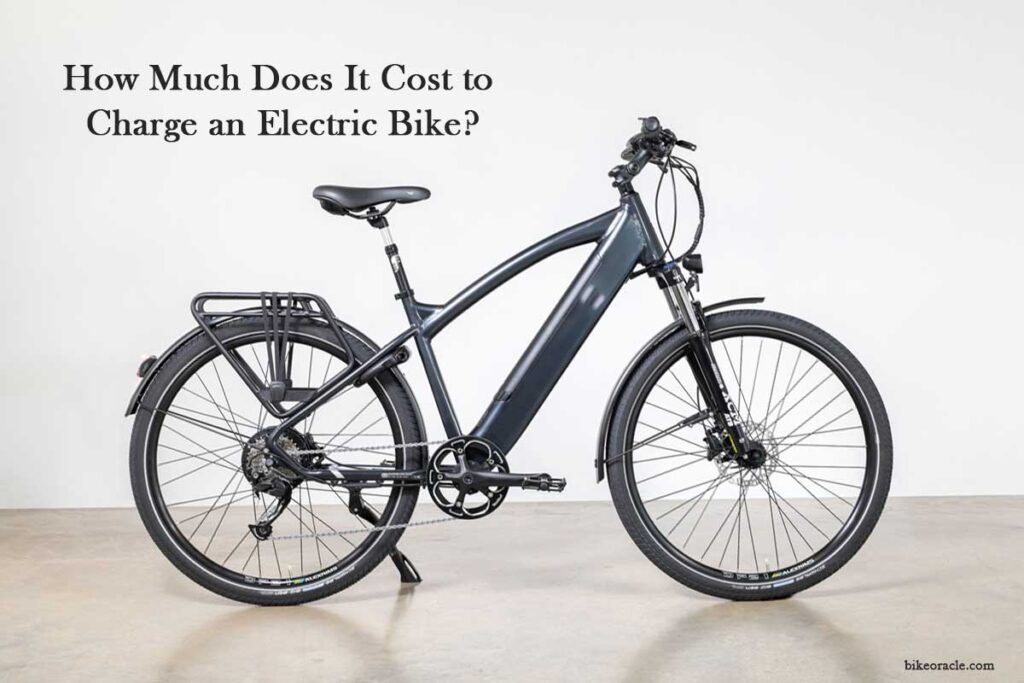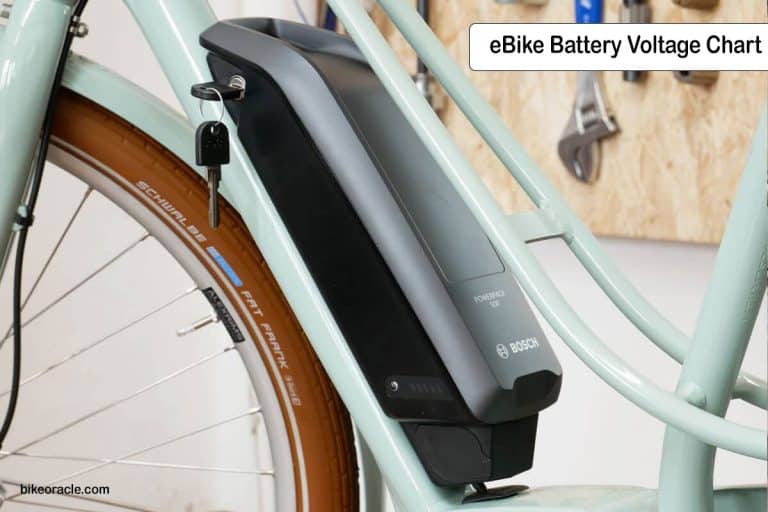How Much Does It Cost to Charge an Electric Bike? – [Answered]

Most people enjoy riding an electric bike due to the emphasis on cycling health, eco-friendliness, and speed. So it’s no wonder that more and more people are deciding to switch from traditional bikes to electric ones. But with a range of options available for different metropolises around the world, it’s not always easy to figure out how much exactly you’ll need to fork over for one of these rides of your choice.
The cost to charge an electric bike varies widely, depending on the cycle. Many people are discouraged from buying or renting a bike because they think it would be too expensive. Don’t let the price keep you from your dreams! There are so many different models and types of bikes, each with a different price. In this article, I’ll share what I have learned about how much it costs to charge an electric bike and how you can get the best value for your money. So, read on!
How long does it take to charge an electric bike?
The first step in learning to charge an electric bike entirely is understanding how electric bikes work. And while the process might vary between different types of e-bikes, there is generally thought that this process takes an hour or less. The amount of time it takes varies greatly depending on the battery size and what brand of e-bike you’re using, but it usually doesn’t take more than four hours to charge. This gives you time to enjoy your ride before heading back home.
Using standard capacity batteries, your average electric bike can charge in less than an hour. However, the e-bike community has come up with a way to add lithium-ion battery capacity without adding additional weight. This gives you time to top off while at the same time extending your range between charges.
There are different ways that you can charge your e-bike daily. First, there is the ubiquitous household outlet plug and wall adapter, which uses standard U.S. 110v 15 amp outlets.
The charging process via the wall outlet is expected to take 2-3 hours. This method takes a long time because the batteries are charged at a slower rate while requiring more time to charge the battery.
When used with higher capacity batteries like those in fat bikes, electric bikes have become famous for commuting to work and going on longer rides than can be completed within an hour.
If you are going to charge your e-bike with this method, it may be best to use a specialized fast-charging wall outlet like one that uses 240v and is designed for electric vehicles.
For example, a Bosch active line charger made for the purpose takes about 1.5 hours to charge using this method. Modern e-bike batteries can charge in just two hours when using a high-speed charger. This makes it much easier to fully charge an electric bike battery without worrying about stopping the charging process early.
A portable battery charger is one of the more popular ways to charge your electric bike. USBCELL’s products are designed specifically for commuting and other travel use. It has 12v and 24v charging modes, allowing you to charge batteries with different voltages.
Battery capacity is one of the main factors determining how long it takes to charge an electric bike. Many people who commute with their e-bike keep a backup pack in their backpack or coat pocket if the ride takes longer than expected.
For example, a lithium-ion battery pack with a 12v nominal voltage rating of 36V at -10A can take between 4 and 8 hours to charge using an appropriate 12v battery charger.

However, you can extend the time to charge your e-bike by combining multiple batteries into one pack. This also gives you more capacity and greater range on your electric bike.
This way, you can stop charging when all cells have reached 4.2V. To do this, you will need to know how much power it takes to charge your battery and how long it takes for each cell to reach this voltage level.
For example, a battery pack with a 10A charging capacity and 36V nominal voltage rating may take about 7 hours to charge using a standard 5A charger. The power supplied by the charger is equivalent to 3.6 kWh.
This means it would take 2 hours to charge each cell to 4.2V and complete the charging process.
There are also quick-charging methods which can reduce the time required to charge your e-bike. The included charger does not support high-power chargers like those that fast-charge e-bike batteries. Instead, it is designed to support a trickle charge rate of .5A which is typical for electric vehicle and hybrid car applications.
With this method, you can charge an e-bike battery in 15 to 30 minutes at a steady rate of 0.5A. This is perfect for quick bursts whenever you’re on the go and need to recharge your bike in a hurry.
How Much Does It Cost to Charge an Electric Bike?
The main factor in this calculation is the battery voltage, which is determined by the size of the battery. The amp hour of the battery and your local electrical rates are also figured into this calculation. I have put together a table with all these factors and have laid them out for you below:
*The Cost per hour will vary depending on your electrical rates
Battery Voltage: 1.5 – 22 Volts
Amp Hours: 11 – 200
Electricity Rates Per KWH: 0.25 to 6 cents (Depending on where you live)
Cost per hour: $1.19 – $9.40 for an 11-200 Amp Hour battery ranging from a 1.5 to a 22-volt system Voltage – The battery voltage determines how much weight the bike can pull and how far you can go. The higher the voltage, the more weight can be pulled and the farther you can go. The most common battery system comes in a 12-volt system, which puts out 40 amp hours. This is great if you need to go far. The downside is that it only puts out 40 amps of D.C. power and will limit your cruising distance on flat ground to about 90 miles (139 km) per charge. This can be overcome by installing a larger battery pack or adding extra electric storage for those long-distance trips. Amp Hour – The amp hour of the battery is the rating of how long it will run on a single charge. For example, a 180 Amp hour battery can take two amps until drained. It would be better to state that a 210 Amp hour battery can take 1 amp for 100 hours. It would help if you remembered that as batteries age, they lose their ability to hold as much charge as when they were new.
Cost per charge:
We will follow three steps for calculating Cost per charge:
1. Need to find out the watt-hours (Wh). For this, multiply the battery voltage (V) by the battery’s ampere-hour rating (Ah). We can find the battery voltage and the battery ampere hour rating in the owner’s manual.
For example, a battery of 36 V with a 10 Ah rating will provide 36V x 10Ah = 360Wh. That means this battery will provide 360Watt (power) in 1 hour.
2. In the second step need to calculate the Kilowatt Hours. For this, divide the Wh (the result of step 1) by 1000.
For example, 360 watts (from step 1) divided by 1000 equals 0.36 watts.
3. Now, find your local electricity rate per Unit (KWh) and multiply your local electric rate by the KWh (from step 2). For example, your local electric rate per KWh is 6 cents. So the Cost per charge will be .36X6=2.16 cents.
The example of an electric bike we used here claims a 15-20 mile range.
We’ll compare some popular electric bikes’ Costs per charge
| Ebike Model | Watt-hours | KWh | Cost per KWh (cents) | Cost per charge (cents) |
| Co-op Cycles CTY e2.2 | 504 | .504 | 10 | 5.04 |
| Co-op Cycles Generation e1.1 | 417 | .417 | 10 | 4.17 |
| RadRunner 2 Electric Utility Bike | 672 | .672 | 10 | 6.72 |
| RadMission Electric Hybrid Bike | 504 | .504 | 10 | 5.04 |
Cost per mile or kilo-meter covered
We will need two things to calculate the Cost per mile or kilometre for an electric bike.
1) Cost per charge (which we find out in the previous stage)
2) The average mileage in miles or kilometres of the electric bike. Sometimes this date is given in the manual, or we can find this data after taking the whole charge trip and counting the mileage. For example, 20 miles or 32 Km for a full charge.
Now, divide the Cost per charge by the average mileage. For example, the Cost per charge is 1.9 cents, and the average mileage is 20 miles or 32 km. So the cost per mile will be 1.9/20 = .095 cents per mile or 1.9/32= .06 cents per kilometer.
Read More: Best Cycling Helmet for Oval Shaped Head
How Much Does it Cost to Charge an e-Bike Annually?
Calculating the Cost to charge an e-Bike annually depends on how often you need to charge the e-bike. For example, if you charge the above-calculated e-bike ten times a month. Then the Cost will be= cost per charge X times of e-bike charge in a month X 12 = 1.9X10X12= 228 cents annually.
How to Reduce the electric bike Battery charging Cost?
Electric bikes have quickly become the new craze in transportation, with companies like Tesla and BionX designing their own for a better user experience.
But one of the downsides of electric bikes is that they’re pricey to charge, especially considering how long they can last on a single charge.
However, this article will teach you how to reduce the Cost of charging an electric bike by up to 40%, which is quite a significant savings.
Here are some tips on how to charge your bike more efficiently:
1. Purchase an intelligent charger that knows when your battery is full. It’ll stop charging once it detects the battery is full, hence saving you money on electricity. For better long-term maintenance and battery health, you should buy chargers with temperature sensors.
2. Consider using solar panels for charging during the day or any other renewable energy sources. If you’re planning to ride long distances, this will save you money on charging.
3. Don’t plug your bike in when it’s not being ridden. Save the energy for when you’re riding, as it’ll take a lot of energy to start up again after several minutes of inactivity.
4. Don’t charge your bike overnight if you can help it. Bikes can only charge when the battery is full, and we’ve found that most of them can take about 10-12 hours to charge fully. If you’ve been out longer than this, unplug your bike.
5. You can get a good deal on a battery pack if you buy it in bulk. However, remember that you should never store your batteries for more than two months at a time (battery life depends on how it’s used and maintained). Also, it is recommended that you charge your batteries at 30% every two months to prevent degradation.
6. Consider using a maintenance-free battery pack with a lower charge capacity.
7. Lastly, if your bike doesn’t have a smart charger, try out the charger that comes with the bike. It’ll work better for you.
Hopefully, with all the tips above, your electric bike will have a long lifespan and keep you on the road and your wallet in good shape.
Cost to charge an electric bike in 21 countries
Here we list 21 countries’ Costs to charge an electric bike. Here the Cost per KWh is taken from STATISTA. And the Cost per charge was calculated for the battery with 36V and 8.8 Ah. The Cost per year is calculated for the ten times charge of the battery in a month, then multiplied by 12 (no. months in a year)
| Name of the country | Cost per Kwh (in usd) | Cost per charge (in usd) = cost per KWhX0.3168 | Cost per year (in usd)= cost per chargeX10X12 |
| Denmark | $ 0.36 | $ 0.11 | $ 13.69 |
| Germany | $ 0.35 | $ 0.11 | $ 13.31 |
| Belgium | $ 0.32 | $ 0.10 | $ 12.17 |
| UK | $ 0.28 | $ 0.09 | $ 10.64 |
| Venezuela | $ 0.27 | $ 0.09 | $ 10.26 |
| Spain | $ 0.26 | $ 0.08 | $ 9.88 |
| Ireland | $ 0.26 | $ 0.08 | $ 9.88 |
| Rwanda | $ 0.25 | $ 0.08 | $ 9.50 |
| Japan | $ 0.24 | $ 0.08 | $ 9.12 |
| Italy | $ 0.23 | $ 0.07 | $ 8.74 |
| Australia | $ 0.23 | $ 0.07 | $ 8.74 |
| Kenya | $ 0.22 | $ 0.07 | $ 8.36 |
| Newzealand | $ 0.21 | $ 0.07 | $ 7.98 |
| France | $ 0.20 | $ 0.06 | $ 7.60 |
| Poland | $ 0.18 | $ 0.06 | $ 6.84 |
| South Africa | $ 0.18 | $ 0.06 | $ 6.84 |
| Singapore | $ 0.18 | $ 0.06 | $ 6.84 |
| Chile | $ 0.17 | $ 0.05 | $ 6.46 |
| Israel | $ 0.17 | $ 0.05 | $ 6.46 |
| Brazil | $ 0.16 | $ 0.05 | $ 6.08 |
| United States | $ 0.16 | $ 0.05 | $ 6.08 |
Read More: Can I Use Clipless Pedals with Regular Shoes?
Conclusion
Some bikes are designed to be charged from an outlet using a standard electric cord, while others are designed to be charged at a public charging station. The price of electricity also varies from place to place, and the charge time for each type of bike will vary accordingly. That’s why the Cost of charging an electric bike is not the same for every country and every bike, but on average, it is $.04 to $.07.





